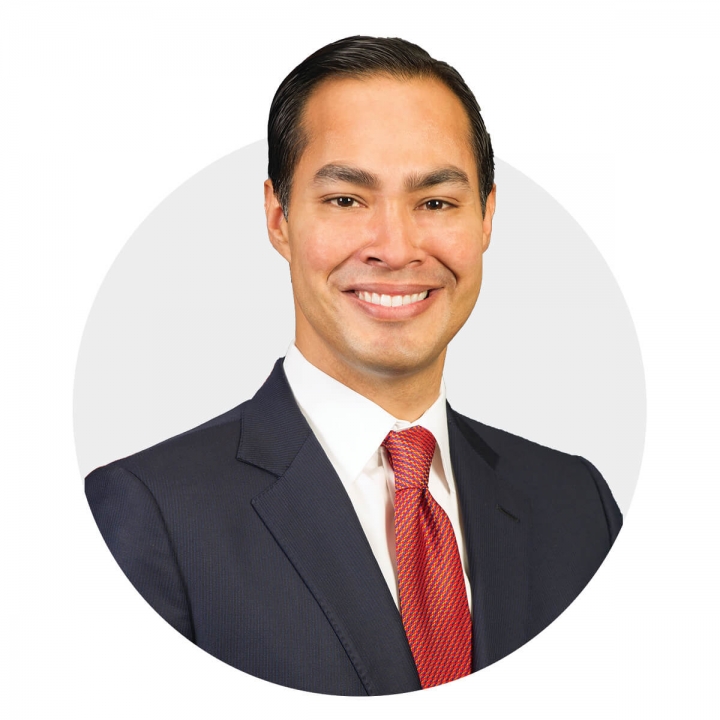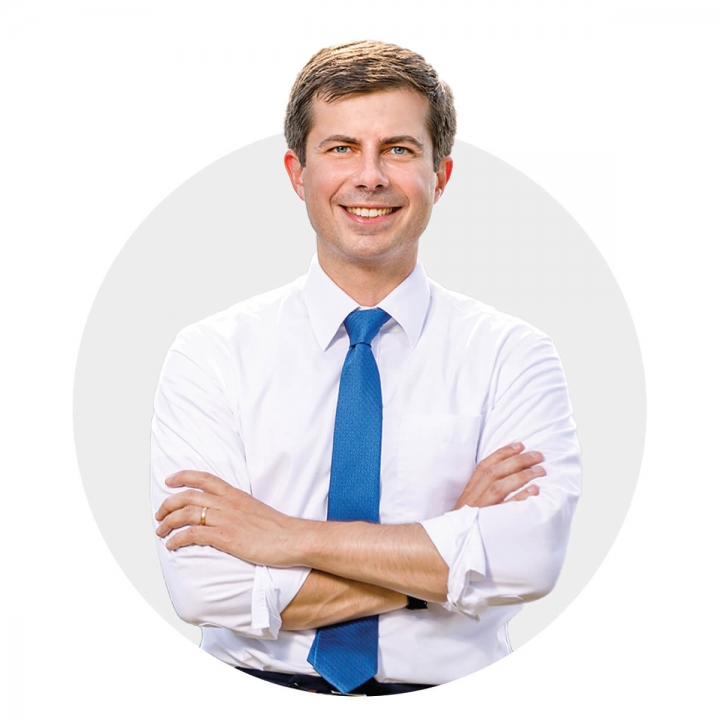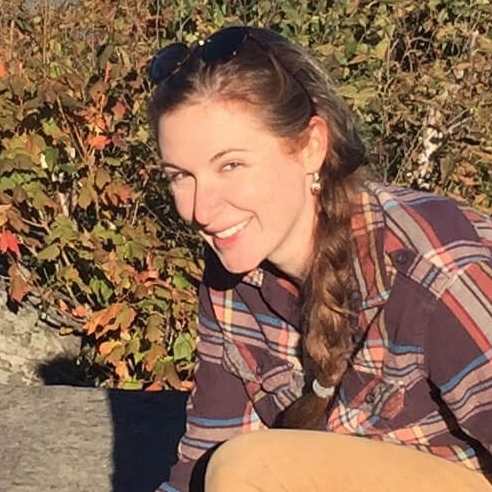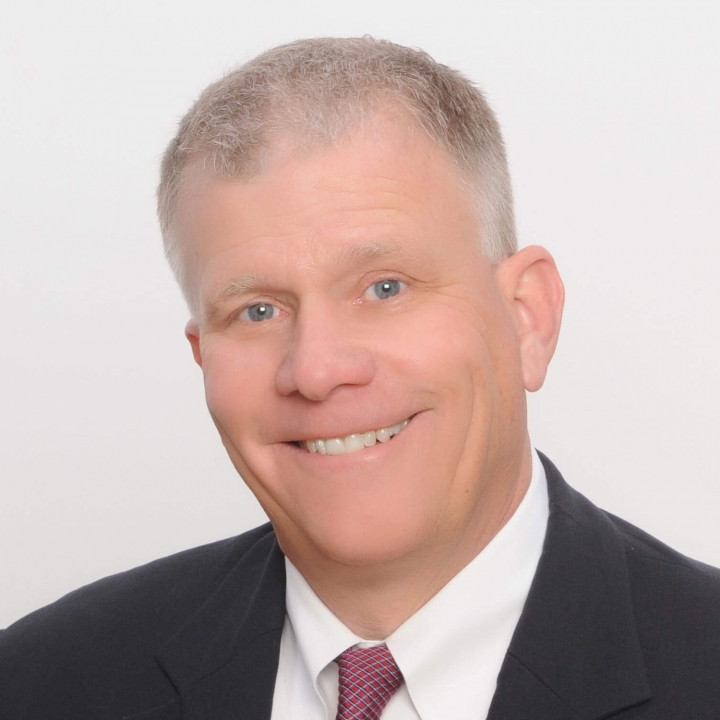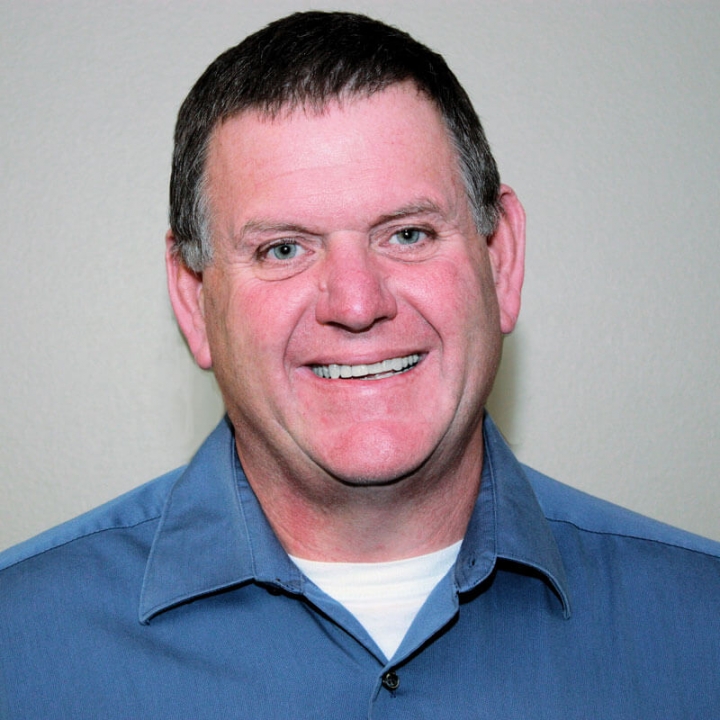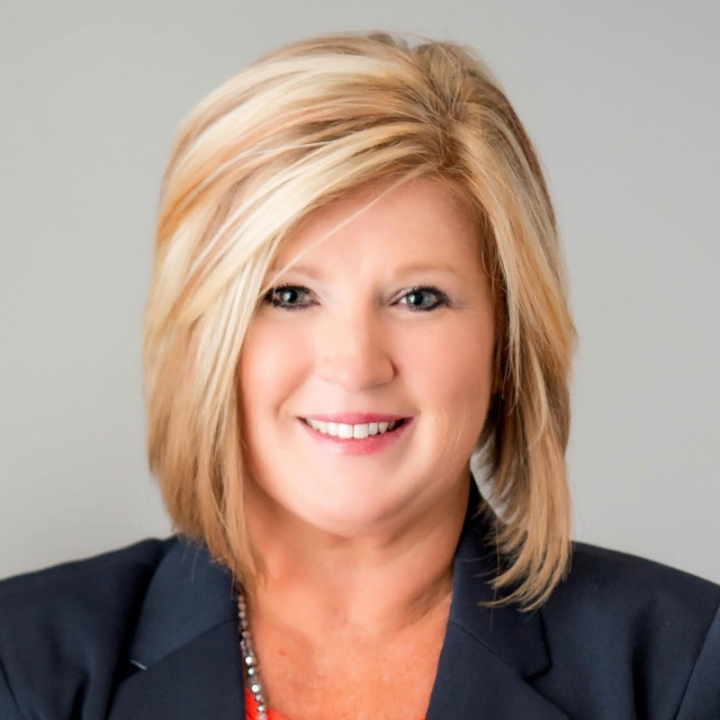Julián Castro on Voting Rights Restoration
Castro supports automatic restoration of voting rights for felons who have served their sentences.
“I agree with those who have said that incarceration should not necessarily strip somebody of the right to vote. There’s a history in this country, especially in the SOuth, of African Americans being disenfranchised because they were over-incarcerated and that we need to change that… Where I would draw the line is with violent felons.”
Bernie Sanders’ call for all prisoners to be able to vote sets him apart from almost every other 2020 Democrat
Business Insider, April 30, 2019 | John Haltiwanger
Read More
Bernie Sanders’ call for all prisoners to be able to vote sets him apart from almost every other 2020 Democrat
Business Insider, April 30, 2019 | John Haltiwanger
The First Chance Plan
Julian Castro campaign website, 2019
Julián Castro on Drug Decriminalization
Castro promises to end the War on Drugs.
Castro favors legalization of marijuana, and believes a key component of marijuana legalization is the expungement of marijuana-related charges for individuals with existing charges on their records.
Castro promises to eliminate the sentencing disparity between crack and powder cocaine, and will order a federal review of all other sentencing guidelines to address other possible racial disparities in sentencing.
In an interview with the Iowa Harm Reduction Coalition in November, 2019, Castro indicated an openness for exploring decriminalization or other alternatives for drug enforcement beyond just marijuana.
Castro pledges to increase security at U.S. ports of entry to prevent the trafficking of drugs like fentanyl into the U.S.
Castro believes there should be harsher penalties for individuals who sell drugs or traffick drugs into the U.S.
Under his leadership, the Department of Housing and Urban Development (HUD) published a 2014 memo clarifying that owners of federally assisted housing facilities are required to deny entry to people who use controlled substances, including marijuana, even for medical purposes in accordance with state law. The guidance did say, however, that it is up to owners’ discretion whether people who already live in public housing must be evicted if cannabis use is later discovered. In a Nov. 2019 roundtable discussion with IHRC, Castro responded to a question about this memo, stating, “... That memo that was published I think in December of 2014, basically was a restatement of the federal law in place, right? And for those who follow these memos, these memos are the kinds of memos that are regularly put out on these subjects. I think it was also signed by like an assistant secretary, right? And so there’s a signal there that we want to move in the direction of actually working to assist, working to help people who may be grappling with these issues and we in fact did a lot of that work. Our housing first work around ending homelessness in the United States provided emphasized housing with permanent supportive services, including for people who are grappling with substance issues, so I absolutely want us to continue to move in that direction. I also believe that ultimately, we need to change the law that marijuana should not be illegal. We should legalize marijuana… We should also in the least, deprioritize the enforcement of the use of other substances, so that we don’t have this model of the war on drugs that I think is a failed model but instead, focus on getting people the treatment that they need, and also, other opportunity, including housing. You know, I will say, right, anytime you’re in a public housing situation, you do have a concern because it’s in a community, and so to the extent that the people that manage public housing out there housing authorities do have to concern themselves with the entire community. So, if there are instances where situations arise of issues between residents, that also has to be addressed. One of the things that we did when I was HUD Secretary, is that we said, we gave guidance to housing authorities that, for instance, just because somebody has a criminal record that you shouldn’t “X” them out of public housing. That you have to go deeper than that, but that we didn’t want people to have this big “X” on their record that didn’t allow them to get public housing. We also have said that we don’t believe in this three strike, one strike actually in many housing authorities. This one strike and you’re out policy doesn’t make sense, that it has to be more nuanced than that. And I think that we need to continue along that path, both with concern for allowing people to get the help they need and the resources they need and to live in a safe decent place, and also you have to manage that with what’s happening in the community with other residents. We can strike a good balance I think.”
“I actually support the legalization of marijuana, and let me tell you why. Number one, we have enough experience in states like Colorado and other communities across our country that have shown how you can do this, how you can do it in a sensible way with good regulation. I mean, it’s going to be regulated, right? People are not going to be able to do whatever they want, but a well-regulated, legalized system of marijuana, I think, makes sense. On top of that, we need to go back and expunge the records of people who were imprisoned because of using marijuana. And… this part is important in part because there are a lot of people, and folks in this audience probably know some of them who have served jail time, right? And disproportionately it’s impacted communities of color and poor neighborhoods of people who have been imprisoned because of marijuana use. So, it’s not enough just to say we want to legalize it, we actually want to go back and expunge these records…”
Presidential Town Hall with Julian Castro
CNN, April 11, 2019
“We need to ensure that we build on the First Step Act and reform our criminal justice system. That we do things like legalize marijuana. That we encourage communities to go back and expunge the records of too many who have been caught up in this criminal justice system and locked behind bars for small-level offenses.”
Beto O’Rourke, Andrew Yang, Julian Castro Speak at National Action Network Event
NowThis News, April 3, 2019
“…I do think for instance when we compare it to marijuana right now, that we have good evidence that we can regulate that in a sensible way. We have it in Colorado and other states now that have allowed recreational use of marijuana, which I agree with, and so there’s good evidence out there. I’m open to the United States looking at other substances that we can either decriminalize or de-enforce, deprioritize enforcement of. That’s newer right? I mean the evidence of that in our country is newer, and so I do think though that it’s worth taking a look at that and understanding where are those opportunities to either decriminalize or at least de-emphasize enforcement so that we’re not penalizing individuals who should instead be getting the treatment that they need. I believe in that model, generally. I don’t believe in cracking down on people, and like I said, a lot of folks getting caught up in an incarceration system that takes them off of the productive path in life, and they’re never able to get back on because they have that record. And so, I’m very open to that, but you know it is for those of us who are policymakers or aspiring to be, that is newer. I look forward to understanding how we can do that, and make sure that we can do it in the same orderly way, workable way that we’ve been able to do with marijuana in these states.”
Julian Castro – IHRC 2020 Democratic Presidential Candidate Forum on the Overdose Crisis – Event 2
November 23, 2019
“I would make sure as president that we have harsh penalties against people who traffic in fentanyl and similar drugs. I also believe we need to make smart investments in our ports of entry so that we can crack down further on the trafficking of fentanyl and other drugs… One thing that I believe we should do is to better invest in security at our ports of entry so that we can do things like catch more of the fentanyl that is coming through… I agree with those who say that we need harsher sentences for people who sell those drugs. We have — when it comes to the users of drugs, for instance, people who have used marijuana in comparison, we have locked people up for generations. There are tons and tons of people who have sat in jail for relatively low-level offenses. We ought to be going after people who are selling these drugs.”
Presidential Town Hall with Julian Castro
CNN, April 11, 2019
“When it comes to the issue of [opioid] prescriptions, I hear that. I also hear from people that we want to make sure that if somebody actually needs medication or a certain drug, that they’re able to get that too, and so, I am mindful of not being overzealous in a way that hurts people who actually need certain medication.”
Julian Castro – IHRC 2020 Democratic Presidential Candidate Forum on the Overdose Crisis – Event 2
November 23, 2019
Read More
The First Chance Plan
Julian Castro campaign website, 2019
Use of Marijuana in Multifamily Assisted Properties
U.S. Department of Housing and Urban Development, December 29, 2014 | Benjamin T. Metcalf
Julian Castro – IHRC 2020 Democratic Presidential Candidate Forum on the Overdose Crisis – Event 2
November 23, 2019
Julian Castro presidency would make sure patients who actually need opioids could get them
Blake Dodge, November 30, 2019 | Newsweek
Julian Castro Open To Decriminalizing Drugs And Endorses Safe Consumption Sites
Kyle Jaeger, November 29, 2019 | Marijuana Moment
IHRC discusses drug policy with presidential candidates
Brian Tabick, November 23, 2019 | KCRG
Harris highlights contrasts with rivals Sanders, Warren
O. Kay Henderson, November 25, 2019 | Radio Iowa
Julián Castro on Substance Use Treatment Access
Castro promises to address the opioid crisis and addiction as a public health issue. He also pledges to invest in new initiatives to prevent dangerous drug use and treat addiction.
In a conversation with IHRC, Castro said he would consider removing the “X” waiver requirements for buprenorphine and methadone prescribing.
“Washington needs to be a partner for states like New Hampshire who has had quite a problem with the opioid crisis. And if I’m president I’ll be a strong partner.”
Castro visits recovery center in Laconia after launching presidential campaign
WMUR-TV, January 16, 2019 | Adam Sexton
At a conversation at the Iowa Harm Reduction Coalition drop-in center in Cedar Rapids, IHRC Executive Director asked if Castro would support removing the “X” waiver for buprenorphine and methadone prescribing. Castro responded, “Well and I agree with you. I think underlying that question is that we can do this in a way where we maintain safety for patients and integrity in the system and accountability right for those who are prescribing. So yes, I believe that we can do that without the cumbersome process that we have in place right now that requires this waiver, because you make a point, there are other prescriptions that are written now that don’t require anything like that, so I would support moving in that direction.” Ziegenhorn followed up by asking pointedly, “Would you commit to getting rid of the X waiver?” As the room and the Secretary laughed, he replied, “I am open to that. Let me research it a little bit more. Today was the first day that I heard about that, yes. I have generally avoided in this campaign, committing on the spot to things I have not fully read about, but I will take a look at it.” Ziegenhorn laughed as well, commenting, “That’s very reasonable.”
“During the campaign I’ve articulated a vision for the future of our country where everyone counts, and where we don’t leave anybody out. We don’t otherize people, but instead, we ensure that everybody has the tools that they need in the years to come and the support they need to be able to live a healthy and prosperous life. And what I’ve seen as Mayor of San Antonio, as Secretary of Housing and Urban Development is that often times, we write people off, people who are in the throes of, you know, an addiction who may be using opioids or who are overdosing. Instead of being able to get the help that they need, too often times they’re ostracized or unable to find the resources that they need when they need it. And so, what I would like to see us do in the years to come, both immediately and then also as we transition to a healthcare system that is actually able to meet the needs of every single person in this country, I would like to see us invest more in those resources that get directly at the people who need them, without the stigma that is often associated with those services right now and for the federal government to be a strong partner with state and local efforts to do that instead of a hinderance.”
Julian Castro – IHRC 2020 Democratic Presidential Candidate Forum on the Overdose Crisis – Event 2
November 23, 2019
Read More
The First Chance Plan
Julian Castro campaign website, 2019
Julian Castro – IHRC 2020 Democratic Presidential Candidate Forum on the Overdose Crisis – Event 2
November 23, 2019
Julian Castro presidency would make sure patients who actually need opioids could get them
Blake Dodge, November 30, 2019
Newsweek
Julian Castro Open To Decriminalizing Drugs And Endorses Safe Consumption Sites
Kyle Jaeger, November 29, 2019 | Marijuana Moment
IHRC discusses drug policy with presidential candidates
Brian Tabick, November 23, 2019 | KCRG
Harris highlights contrasts with rivals Sanders, Warren
O. Kay Henderson, November 25, 2019 | Radio Iowa
Julián Castro on Syringe Access
In a roundtable conversation with IHRC, Castro expressed support for syringe service programs and for lifting the federal funding ban for the purchase of syringes.
“Yes, I believe that we should invest in needle exchange programs that have shown themselves to be effective. Again, I think that that needs to be part of an overall strategy to help people get onto the path and life that they want. I don’t think any one piece is the answer just in and of itself, that it needs to be part of the strategy to get people the help that they need. Along with that strategy and those resource investments, then yes, I absolutely would [support lifting the federal funding ban on syringes], because I think we have enough evidence out there that needle exchange programs have worked. And I look at this through the perspective of how can we make sure that somebody is able to get the immediate help that they need to avoid worse outcomes? HIV or something else on top of right what they’re already dealing with and we have evidence that these work. So yes, I would [support lifting the federal funding ban on syringes].”
Julian Castro – IHRC 2020 Democratic Presidential Candidate Forum on the Overdose Crisis – Event 2
November 23, 2019
Read More
Julian Castro – IHRC 2020 Democratic Presidential Candidate Forum on the Overdose Crisis – Event 2
November 23, 2019
Julian Castro Open To Decriminalizing Drugs And Endorses Safe Consumption Sites
Kyle Jaeger, November 29, 2019 | Marijuana Moment
IHRC discusses drug policy with presidential candidates
Brian Tabick, November 23, 2019 | KCRG
Julián Castro on Criminal Justice Reform
Castro promises to end the War on Drugs.
Castro pledges to increase security at U.S. ports of entry to prevent the trafficking of drugs like fentanyl into the U.S. When asked in a Nov. 2019 conversation with IHRC to expand on this promise, Castro responded, “Well I think that again, we need to strike a strong balance to the extent that there’s a usefulness for fentanyl in some instances than similar substances. I mean, I want to make sure that they’re available, but about three or four months ago we had the largest bust of fentanyl in the nation’s history, which was 254 pounds that came through a port of entry in Arizona. What I see is a lot of smuggling through these ports of entry, illegal fentanyl, and I believe that’s one way, that’s one area, where we can do a better job of preventing that entry into the United States, that we can be more vigilant. I see that still as consistent with ensuring that people have what they need and taking a change in direction in cracking down on the individual, which has really been a large part of the war on drugs is penalizing the individuals who end up in the grips of usage and often suffer from that. I don't believe in that approach, but I also don’t believe in substances, illegal substances coming through ports of entry that shouldn’t be coming through there. So, I think that we can do both of those things.”
Castro promises to eliminate the sentencing disparity between crack and powder cocaine, and will order a federal review of all other sentencing guidelines to address other possible racial disparities in sentencing.
Castro would reform the plea system, allowing for more support for defendants.
Castro would allow individuals up to the age of 21 to be tried as juveniles.
Castro would repeal the 1994 crime bill’s mandatory minimums and three strikes laws.
Castro would create a new $500 million federal grant program to invest in public defenders.
Castro would work to end abusive civil asset forfeiture.
Castro would ban the use of for-profit contractors in prisons.
Castro would abolish the death penalty.
Castro would strengthen enforcement of the Prison Rape Elimination Act (PREA).
Castro supports reforms to end the practice of shackling mothers during delivery of a child.
Castro would direct the Department of Justice to adequately enforce all laws and regulations to protect the rights of disabled prisoners, require prisons to have designated staff empowered to protect the needs of disabled prisoners, require publicly available data collected on the condition of disabled prisoners, and pass legislation reducing the number of disabled people incarcerated, including by increasing access to criminal justice diversion programs, and providing community-based mental health services.
Castro would repeal the Prison Litigation Reform Act, which significantly restricts prisoners’ ability to file lawsuits based on the conditions of their confinement.
Castro supports improving educational opportunities for juvenile and adult individuals who are incarcerated, such as increasing access to high-level classes, and credit-recovery opportunities.
Castro would promote non-armed responses to 911 calls by establishing partnerships between mental health units and other first responders, including crisis intervention services by medics, counselors, and social workers, rather than armed police officers.
Castro would work to increase housing assistance for formerly incarcerated people, and would pass legislation requiring States that receive benefits to lift the lifetime ban on Supplemental Nutrition Assistance Program (SNAP) and Temporary Assistance for Needy Families (TANF) benefits for people with felony drug convictions.
Castro would establish an independent commission to review cases of non-violent offenders and make continuing recommendations to the President on clemency.
Castro would ban the use of deadly force unless there is an imminent threat to the life of another person and all other reasonable alternatives have been exhausted.
Castro favors legalization of marijuana, and believes a key component of marijuana legalization is the expungement of marijuana-related charges for individuals with existing charges on their records.
Castro believes there should be harsher penalties for individuals who sell drugs or traffick drugs into the U.S.
Castro would end cash bail, would support compensation for individuals who are detained pretrial but are later released or acquitted, and would limit pre-trial detention.
Castro promises to end the criminalization of youth by setting a stricter standard for juvenile incarceration, and limit the number of separations of children from their families. Castro would support state efforts to abolish youth prisons, and would redirect funds to community-based, accessible, trauma-informed, and developmentally appropriate programs. Castro would also fund the DOJ and Department of Education to track and respond to civil rights allegations in the youth justice system.
Castro would work to end the practice of trying minors as adults and holding minors in adult facilities.
Castro would reopen and expand the Office for Access to Justice.
Castro would work to improve accessibility within the court system to assist individuals with transportation and to improve accommodations for individuals with disabilities.
Castro would close all for-profit prisons and detention centers.
Castro would guarantee fair wages for any labor performed while incarcerated.
Castro would ban the use of solitary confinement.
Castro would require free access to reproductive health care for incarcerated people.
Castro would guarantee access to gender-confirmation surgery and appropriate accommodations for trans people who are incarcerated.
Castro promises to create an advisory council of currently and formerly incarcerated people, tasked with advising on better conditions within federal prisons and how to prevent incarceration in the first place.
Castro would develop “Second Chance Centers… a single place in a community where formerly incarcerated individuals can get all the information and help they need to re-engage in society.”
Castro pledges to end the discrimination against formely incarcerated people in admissions and financial aid, including repealing restriction on Pell Grant eligibilty for both current and formerly incarcerated individuals.
Castro would end qualified immunity for police officers, making it easier to hold offending officers accountable under criminal and civil law and create a national public database tracking police officer misconduct.
Castro supports removing questions regarding conviction histories from job and other applications.
Castro supports automatic restoration of voting rights for felons who have served their sentences, and allowing formerly incarcerated persons to participate on juries.
Castro would pass legislation ending racial profiling and stop-and-frisk policies, require police departments to screen for prejudice and demonstrate accountability for all instances of biased policing.
“You can’t tell me that if police can apprehend Dylann Roof –the person who shot up that church in Charleston, South Carolina– without hurting him, that Eric Garner and Tamir Rice and Jason Pero and Sandra Bland shouldn’t still be alive today, too.”
Full Video: Sec. Julian Castro at MoveOn’s Big Ideas Forum
MoveOn, June 2, 2019
“I would also restrict or even eliminate qualified immunity. Qualified immunity is a doctrine in law that has shielded police officers that engage in excessive force from being sued civilly successfully. And you know the doctrine has completely gone off the rails and protected very bad behavior. We need to change that.”
Julian Castro – IHRC 2020 Democratic Presidential Candidate Forum on the Overdose Crisis – Event 2
November 23, 2019
“We need a new approach to criminal justice, one that prioritizes prevention, not prison, creates a restorative justice system, heals the wounds of incarceration, and ensures every person has an effective first chance… Drug use and addiction is primarily a public health challenge. In dealing with it primarily as a criminal issue, we have shattered communities, strengthened criminal groups, and locked up those who did not deserve it. As president, I will bring our misguided War on Drugs to an end.”
The First Chance Plan
Julian Castro campaign website, 2019
“So, I’ve come up with a plan to try and fix that [racial disparities in policing]…because I don’t believe that the color of your skin, or whether you live in Cedar Rapids, Iowa or San Francisco, California should determine whether you have one standard or another. I think that a police officer should have the same standard for when they’re going to discharge their weapon and potentially kill somebody… Because what I want is that no matter who you are in the country, no matter the color of your skin, what neighborhood you grow up in, and how much money you have or don’t have, when you see a police officer, you feel safer. We can’t say that. Not everybody can say that right now in our country. I want to make sure that Washington is a strong partner with local police departments and state governments so that everybody can feel that way. And, our police officers, a lot of whom do great work and deserve credit for it, they can make sure they’re as safe as possible and they’re able to carry out their duty.”
Julian Castro – IHRC 2020 Democratic Presidential Candidate Forum on the Overdose Crisis – Event 2
November 23, 2019
Read More
The First Chance Plan
Julian Castro campaign website, 2019
Julián Castro has an ambitious plan to fix American policing
Vox, June 4, 2019
P.R. Lockhart
People First Policing Plan
Julian Castro campaign website, 2019
Julian Castro – IHRC 2020 Democratic Presidential Candidate Forum on the Overdose Crisis – Event 2
November 23, 2019
Julian Castro presidency would make sure patients who actually need opioids could get them
Blake Dodge, November 30, 2019 | Newsweek
Julian Castro Open To Decriminalizing Drugs And Endorses Safe Consumption Sites
Kyle Jaeger, November 29, 2019 | Marijuana Moment
IHRC discusses drug policy with presidential candidates
Brian Tabick, November 23, 2019 | KCRG
Harris highlights contrasts with rivals Sanders, Warren
O. Kay Henderson, November 25, 2019 | Radio Iowa
Julián Castro on Overdose Prevention Sites
In a conversation with IHRC, Castro expressed support for allowing cities to pilot overdose prevention site programs.
When asked by IHRC how Castro would instruct the Department of Justice as President to respond to safe consumption space efforts in cities like Philadelphia, Castro responded, “Well I would like these communities to be able to pursue these safe consumption spaces and essentially pilot out how they work. I believe that we owe it to the effort to see how we can make sure that we avoid these kinds of tragic circumstances… We’ve been trying it one way for so long, and I also believe, having been a Mayor of a city, that one of the values of local communities is that they can try out policy in their own community and measure the results and see how it works, because the system that we have in place right now doesn’t seem to be working very much at all. So… whether it’s Philadelphia or at some of the other cities that have tried it, I believe that we should allow for the piloting of these programs, and that that will help us come to a determination nationally about the approach.”
Read More
How the Democratic presidential candidates would combat the opioid epidemic
Vox, September 10, 2019
Julian Castro – IHRC 2020 Democratic Presidential Candidate Forum on the Overdose Crisis – Event 2
November 23, 2019
Julian Castro Open To Decriminalizing Drugs And Endorses Safe Consumption Sites
Kyle Jaeger, November 29, 2019 | Marijuana Moment
IHRC discusses drug policy with presidential candidates
Brian Tabick, November 23, 2019 | KCRG
Pete Buttigieg on Criminal Justice Reform
Buttigieg pledges to end cash bail.
Buttigieg plans to eliminate private prisons.
Buttigieg wants to eliminate mandatory minimum sentences.
Buttigieg pledges to commute the sentences of people who are incarcerated in the federal system by establishing an independent clemency commission outside the Department of Justice.
Buttigieg would abolish capital punishment.
Buttigieg would work to eliminate arrests and incarceration as punishment for failing to pay legal financial obligations, require states to account for a person’s ability to pay before levying fines and fees, and end practices that create additional economic burdens, such as suspending driver’s licenses for failing to pay criminal justice debts.
Read More
What Pete Buttigieg Has and Hasn’t Done About Homelessness in South Bend
The New Yorker, June 19, 2019 | Charles Bethea
The Full Plan – Healing and Belonging in America: A Plan to Improve Mental Health Care and Combat Addiction
August 23, 2019
Pete Buttigieg on Overdose Prevention Sites
Buttigieg would ensure that federal funds are available for safe injection site pilot programs, and would not allow states’ safe injection sites to be impeded by federal law enforcement policies.
Read More
Becoming Whole: A New Era for LGBTQ+ Americans
Pete Buttigieg, 2019
Pete Buttigieg on HIV Getting to Zero
Buttigieg would "revitalize" the Office of National AIDS Policy, which works to reduce and spread awareness of the HIV/AIDS epidemic across the U.S. (Since January 2017, President Trump has failed to appoint a new director of ONAP after its previous director, Amy Lansky, left that month. Several other staff members have resigned.
Buttigieg does not support universal health care, and says he instead, would "strengthen the Affordable Care Act."
Buttigieg would re-establish the White House Office of National AIDS Policy.
Buttigieg would expand access to HIV testing in clinical and non-clinical settings and would fully fund the Ryan White HIV/AIDS program.
Buttigieg would pursue aggressive price negotiations against any pharmaceutical companies refusing to sell PrEP at an affordable rate. If this failed, he would “consider” exercising eminent domain on PrEP-related patents.
Buttigieg would guarantee funding to expand access to condoms and HIV prevention programs.
Buttigieg would guarantee funding to expand access to condoms and HIV prevention programs.
Buttigieg would expand funding for programs like PEPFAR and the Global Fund which prioritize vulnerable populations in its effort to prevent HIV/AIDS transmission.
Buttigieg’s ONAP strategy would restore civil rights protections for those with HIV in health care settings, "address the stigma" for those who face challenges in obtaining preventative and general care for HIV, and provide access to PrEP for those determined "at risk" by ensuring that all costs are covered by insurance plans. Alternatively, if this fails, his administration would "take over" drug company patents and lower prices.
Buttiegieg promises to “end the HIV/AIDS epidemic” by 2030.
Buttigieg, in his first six months in office, would update the National HIV/AIDS strategy to ensure that undetectable means untransmittable and would ensure universal access to PrEP.
Buttigieg promises to ensure access to PrEP for everyone who needs it through his Medicare for All Who Want It plan. He would require all insurance plans to cover PrEP and related screening and monitoring services without cost sharing and would provide federal funding to ensure access to PrEP drugs and related services for those who are un- or underinsured.
Buttigeig would commit to restoring funding for domestic HIV/AIDS research.
Buttigieg would decriminalize HIV transmission, and would restore the Affordable Care Act’s civil rights protections to everyone at risk for HIV.
Buttigieg would decriminalize HIV transmission, and would restore the Affordable Care Act’s civil rights protections to everyone at risk for HIV.
“We cannot think about ending the AIDS epidemic without addressing directly the substance use disorder (SUD) epidemic in the United States. While opioids have fueled the immediate epidemic of overdose deaths and new HIV infections as a result of needle sharing, we should treat this as a SUD epidemic — whether through opioids, fentanyl or methamphetamine. The HIV outbreak in Scott County, IN was just the tip of the iceberg in terms of communities at risk. I saw at close range the price that is paid by not having comprehensive harm reduction and SUD treatment services.”
2020 Presidential Candidate Questionnaire
AIDS United, 2019 | Pete Buttigieg
Read More
Every 2020 Democratic Candidate’s Plan to End the HIV/AIDS Epidemic
Lifehacker, September 11, 2019
Josh Ocampo
Four Things an HIV Policy Survey Reveals About 2020 Candidates’ Harm Reduction Positions
Filter, September 10, 2019
2020 Presidential Candidate Questionnaire
AIDS United | Pete Buttigieg
Becoming Whole: A New Era for LGBTQ+ Americans
Pete Buttigieg, 2019
Pete Buttigieg on Hepatitis C Treatment Access
Buttegieg has not issued specific statements on this issue beyond the quoted comments from the 2019 AIDS United questionnaire, which support ensuring hepatitis C treatment through broader adoption of Medicaid expansion.
“Access to comprehensive health care services that includes … treatment for hepatitis C by assuring broader adoption of Medicaid expansion and through existing networks of safety-net providers.”
2020 Presidential Candidate Questionnaire
AIDS United, 2019 | Pete Buttigieg
Read More
2020 Presidential Candidate Questionnaire
AIDS United, 2019 | Pete Buttigieg

